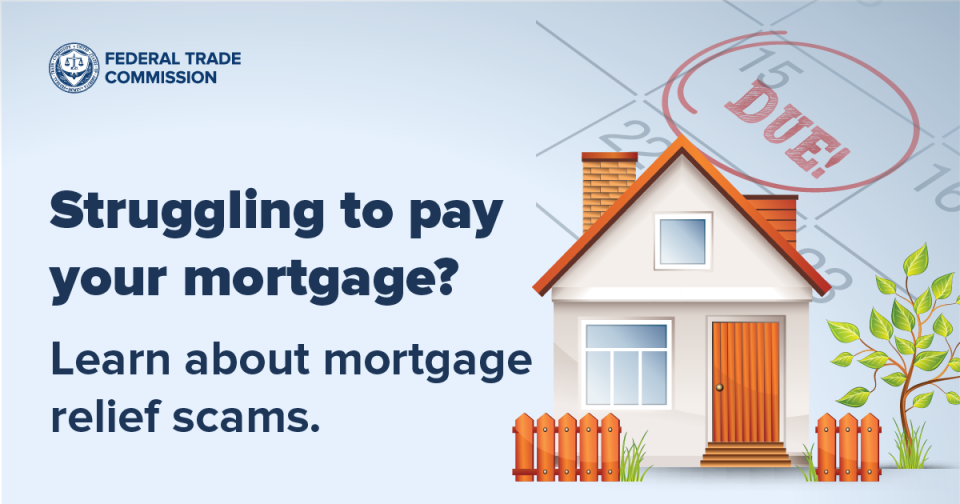Are you having a hard time paying your mortgage? Even if you’ve missed payments or you’re already facing foreclosure, you still might have options. You really do, but that’s the same thing scammers will tell you. Fortunately, there are ways to spot mortgage relief scams while you focus on saving your home.
The best thing to do if you’re having trouble making your mortgage payments is to contact your servicer or lender immediately. Explain your situation and see if there’s a way for you to catch up on payments or modify your mortgage. You might also find free help and advice from a certified housing counselor who can evaluate your situation and explain your options.
As you figure out a way out, here’s how to tell you’re dealing with a phony mortgage assistance offer.
- Scammers demand money before you get any services. That’s illegal.
- Scammers promise they can stop foreclosure or guarantee you a loan modification. But they’ll take your cash and won’t deliver.
- Scammers may want you to pay only by cashier’s check, wire transfer, or a mobile payment app. Scammers like these forms of payment because it’s hard to get your money back.
- Scammers may try to convince you to transfer the deed to your home to them. The deed is the legal document that proves who owns the home. If you transfer the deed, you’re not likely to get it back.
Suspect a mortgage relief scam? Tell the FTC at ReportFraud.ftc.gov.


Thank you so much !!
Because we received a lot of mail like this .
Thank you